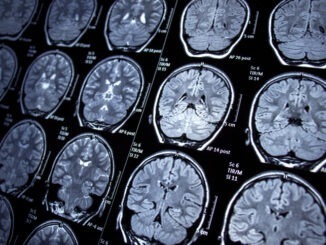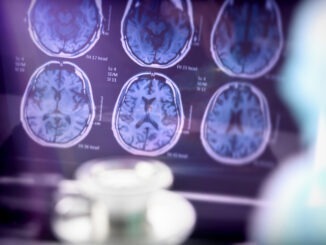
As reported by The Times, a blood test that can detect people at early risk of Alzheimer’s is a step closer after scientists implicated a key brain cell in the development of the disease
As well as providing the basis for a test, their work points to a resolution of one of the persistent mysteries of the condition — why some people are apparently at high risk but never develop it.
Alzheimer’s is associated with the accumulation of a protein called amyloid in the brain. While everyone with Alzheimer’s has the telltale amyloid protein “plaques”, most of those with plaques do not go on to develop the condition. This has hampered the development of good early tests, which many scientists believe will be crucial to intervening in time to halt the disease.
Something else seems to be involved, and the new study points the finger at what it could be: a star-shaped cell called an astrocyte. The research used blood tests and more expensive PET scans to look at amyloid levels in 1,000 cognitively normal people in their late 60s and 70s.
Scientists then supplemented this with a separate test of astrocyte reactivity. Astrocytes help to maintain brain health but some scientists have suspected that they can go wrong and become part of the Alzheimer’s process.
The study, published in the journal Nature Medicine, found that astrocytes seemed to be essential to homing in on the proportion of people with elevated amyloid who were likely to go on to develop Alzheimer’s. In those with both high levels of amyloid and abnormal astrocyte reactivity the condition progressed, with amyloid build-up leading to the activation of another protein, called tau, that is crucial to Alzheimer’s. Without the astrocyte signal, this did not happen.
Although the researchers did not follow people through to the development of symptoms, Professor Tharick Pascoal, from Pitt University, said that the results implied amyloid was a necessary but not sufficient condition for developing Alzheimer’s.
“This puts astrocytes at the centre as key regulators of disease progression, challenging the notion that amyloid is enough to trigger Alzheimer’s disease,” he said. He added that the fact that the combined test appeared to work even without using expensive brain scans suggested that it could make diagnosis — and the search for treatments — far simpler.
Dr Rosa Sancho, head of research at Alzheimer’s Research UK, said that if an astrocyte and amyloid blood test could be used clinically, this could focus research efforts on interventions. “Detecting Alzheimer’s disease early and accurately will be vital in developing truly effective treatments,” she said.
“Testing for both amyloid and astrocyte activity presents a promising new approach for predicting Alzheimer’s and these exciting findings should be confirmed in bigger, more diverse studies.
“These findings increase our understanding of the chain of events in Alzheimer’s — something that’s vital for identifying the most promising targets for drugs and making sure they can be tested in the right people at the right time.
“While previous research has implicated astrocytes in Alzheimer’s, these findings suggest they may have a particularly important early role in the disease and may determine whether amyloid sets off the cascade that results in damage to nerve cells in the brain.”



Be the first to comment